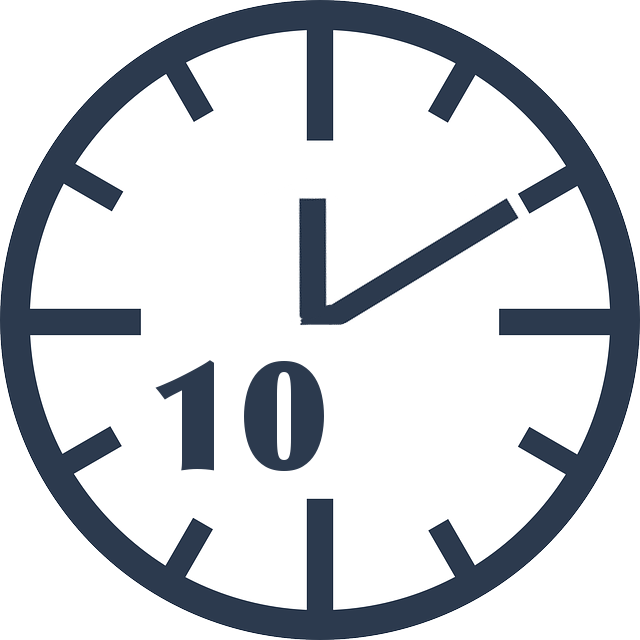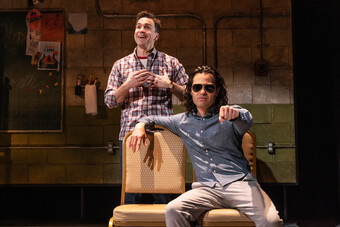Ten Minute Plays
A Breath of Fresh Air or. . . .?
Seems you can’t swing a dead cat or any other metaphorical animal these days without knocking into a ten-minute play. How the devil did this happen? Isn’t a play supposed to be at least long enough to fill up the space between dinner and bedtime? Theatre Database tells us: Although Pierre Loving published a book of "ten-minute plays" in 1923…the “official debut” of the ten-minute play as a genre is usually traced back to the Actors Theatre of Louisville’s 1977 Humana Festival of New American Plays. What began there as a quirky exercise in “Polaroid playwriting” has since evolved into nothing short of a theatrical phenomenon—an exciting and powerful new format that has altered the theatrical landscape with its possibilities. While I’ll go along with the “theatrical phenomenon” tag and the idea that the theatrical landscape has been altered, I will also note that not all phenomena and changes to landscapes are positive. For example, you could experience the phenomenon of being slimed by the ghost of TS Eliot while watching Cats (the existence of which, of course, being why TS Eliot’s ghost could not rest in peace), or you could be dealt a change in the landscape such as The Music Box Theatre being replaced by a West 45th Street Hooters, and despite the tastiness of their hot wings, this would not tip the scale in the direction of a “good outcome.”
There are some questions that need to be asked. For example, is there a societally agreed-upon length for a good story? Is the popularity of ten-minute plays good or bad for the theatre world? Are the ten-minute plays that are piling up like Mitt Romney’s money really plays at all? Let’s delve into these tantalizing questions, right after this disclaimer.
Disclaimer: This author has written ten-minute plays and had one contest winner produced. This author is intrigued by the ten-minute play enough to be the coordinator for a festival of them that will take place in this author’s town in December 2012. Despite his interest and frequent enthusiasm for the ten-minute play, this author also has doubts about its value. This author has now completed the disclaimer and is returning to the topic. Thank you for your patience.
And now, question number one: Is there an audience expectation, an unspoken agreement, on the length of a good story? Evidence suggests the answer is yes—ninety minutes to, at most, three hours. These days just about anything you leave home for—plays, concerts, movies, a circus, a sporting event—will fit into that ninety-minute to three-hour time frame. There are notable exceptions, of course. You have to make a substantial investment of time to watch all of the Indy 500, The Sorrow and the Pity, or—God forbid— Peer Gynt. But somehow, by voting with our feet and our entertainment budgets, we have agreed upon this amount of time. If you go to a movie and it lasts fifty minutes, you will feel cheated. If it lasts five hours, you will walk out, sleep through some of it, or be worried about deep vein thrombosis. This unspoken agreement on appropriate length is so inviolable that when we create short plays, we inevitably group them together to make a program that runs at least ninety minutes. That keeps the contract with the audience intact—and it makes the evening worth the price of a ticket. It follows that if that’s the desired length of entertainment, and that the kind of entertainment we’re talking about consists of telling one complete story, I think this suggests we have a predilection for stories that are told over a consistent span of time. That means that ten-minute plays are breaking a long-standing contract with the audience.
Question number two: Are ten-minute plays really plays at all? The answer is, definitively, maybe. If you’ve ever attended a presentation of ten-minute plays, you may notice that only some have those handy old elements of a story called the beginning, the middle, and the end. The most common problem seems to be, like an aging blowhard writing for HowlRound, too much middle. Among the ten-minute pieces I’ve read or seen, I often perceive that a series of events are occurring or being talked about, and things are being said or done that tell me something about the people talking, but I feel like I’ve missed the set up, and whatever’s happening is happening to characters I don’t really know or care about. The enforced brevity, the literal ticking of the clock, compels the writer to dive right in, and as a result the reader/viewer doesn’t get to see the donning of the swimsuit, the walk to the edge, the flex and then the dive—they just see someone in the water, and too often, drowning. Sometimes these brief plays suffer from either dramaticus interruptus or SES (Sudden Ending Syndrome.) I enjoy the tension that develops in the early part of a play, a tension I feel when I’ve been drawn in and unanswered questions are multiplying, and I savor the moment when I realize I’m interested enough to be anticipating the payoff. But with the ten-minute play I find myself fretting over the climax, worrying it won’t come or will come too soon. In either case, it can be just disappointing and embarrassing for everyone involved as you wander around mumbling something about having to get home and feed your cat, while you’re avoiding eye contact and looking for your socks, metaphorically speaking. If this author was to extend the love-making metaphor a little further (and was there ever any doubt?), he might say most ten-minute plays fail to satisfy because they are either all foreplay without consummation, or wham-bam-thank-you-ma’am encounters that lacked the proper courtship. Aren’t good plays seductive? Don’t they toss their hair and give you just enough of a smile to draw you closer, and then deepen your interest with their quirks and curiosities? And having captured you, don’t good plays adhere to the third-date rule? Good plays are not a tease. Conversely, neither are they a quickie on top of a pile of coats in the host’s bedroom at a party when you were feeling really needy and vulnerable and maybe you had one too meeny martoonis.
But I digress. This author’s point here is that far too many of what we are calling “plays” are more properly identified as scenes, sketches, slices of life, or even excerpts from plays. Some of these are well-written, clever, touching, funny—but if it doesn’t have a beginning, a middle and an end, and contain the elements Aristotle catalogued in his Poetics, it’s really not a play. Semantics, you say, or quibbling? Perhaps, but if you’re in the business of words you should care for them. Shouldn’t “play” and “story” be interchangeable? And would you call it a story if lacked a majority of the qualities that make up a story? If all you saw was Goldilocks poking around an empty house and commenting on the temperature of porridge and the bears never showed up, would you have a story? Or just a scene? Stop! Don’t start writing your comment on how what I’ve been reading and seeing is postmodernism that breaks the bounds of conventional storytelling or some such claptrap. This is entirely possible, but I stand on my point (ouch) that while that may be “theatre” it is not a “play.” I argue: no story, no play.
Shouldn’t “play” and “story” be interchangeable? And would you call it a story if lacked a majority of the qualities that make up a story?
Having made, remade, and worn out that argument, let’s move on to “Is the ten-minute play good for the theatre world?” To this I say again, stridently, maybe. Anything that gets writers excited is a good thing. Ten-minute plays (and their child One-Page Plays, and their inevitable grandchildren One-Word Plays and One-Syllable Plays) are an accessible, achievable thing. There is something quite wonderful about thinking “I could knock out seven to ten pages of clever font and appropriately spaced dialogue in time to meet that submission deadline and have a real sense of accomplishment!” Write on, writers! Likewise, anything that gets people enthused enough to let Real Housewives languish on the DVR to attend a live theatre event is a good thing, and if ten-minute plays can do that, huzzah! For theatre companies, it should be dreamy to market this kind of bite-sized stage work, appealing to the modern reality of short attention spans and potentially different enough to be attractive to the nontraditional playgoer, even (does this author dare say it?) younger audiences.
With those positives accounted for, let’s get real—ten-minute plays will never be more than cute, a diversion, an oddity. Someone will always ask you if you plan to expand your ten-minute play into a “real” play. Ten-minute plays are to full-length plays as short stories are to novels and as short subject films are to features. They are destined to be a lesser genre, an “at a ceremony held earlier today the following awards were presented” genre. Does that make the tapas of playwriting bad, wrong, or a waste of time? To the contrary, to create a short play that is really good is more difficult than creating something full-length that is really good. In that way they are like their cousins the short-subject film and the short story. (As either Pascal, Twain, Abe Lincoln, or Shaw said, depending on whom you ask, "I have made this letter longer than usual because I lack the time to make it shorter.") So let the ten-minute plays live on. Let’s write them, let’s produce them, and let’s go see them— but always keeping in mind that they are forever an appetizer and never a meal.













Comments
The article is just the start of the conversation—we want to know what you think about this subject, too! HowlRound is a space for knowledge-sharing, and we welcome spirited, thoughtful, and on-topic dialogue. Find our full comments policy here
Barry,
I so enjoyed this blog. I've written around 10 ten minute plays, a few in festivals, and find them at times an interesting challenge and learning exercise in being concise and efficient with language and arc of story, but I do not find them very fulfilling. I disagree with your comment about writing a really good 10 minute play more difficult than writing a really good full length play. They are too different entities and require different things. I'm dismayed and discouraged by the seemingly decreased attention span of the general public [especially those 25 and younger] and feel there are many aspects which contribute to this phenomenon, too numerous to go into here. So as far as I'm concerned the ten minute format is mostly a curse, even though there are merits to it [which you mention]. The BEST new play festival I've attended that was not focused on full length pieces, [90 minutes or more] was a festival that included different length pieces and was 2 hours in length [not counting intermission], and included two 10 minute pieces, a 15 minute piece, two 20 minute pieces and one 40 minute piece. The festival producers seemed to be more concerned about the quality of the writing and themes of the pieces than needing to fit all of them within a rigid time structure. Wish theatres wanting to promote new play festivals would think and structure in this way. I've been to a moderate amount of ten minute festivals, and too often half the pieces were not even that interesting. I went to Lincoln Center Performing Arts Library a few months ago to watch a video for a production of 'Long Days Journey Into Night' [3 hrs or more] and was riveted. I watched it straight through, didn't even take a bathroom break. What's even more disturbing than the 10 minute structure genre, is the 1 minute. In my book it's just plain ludicrous.
I am not a fan of the ten-minute play phenomenon. I think they are a marketing ploy for many smaller theaters. As a New Yorker, I attend all types of theater, and none of them are evenings of ten-minute plays. I think they can be a distraction for playwrights; you can't make a career -- as much as that is possible in theater today -- writing 10-minute play after 10-minute play. That said, I am happy with the few I have written, but my focus is always on full-lengths.
Well, it's not universally the case that a slate of ten-minute plays can't be an engaging and entertaining evening of theater. Every time I've seen a collection of ten-minutes produced at Actors Theatre of Louisville -- not just the curated thematic programs during Humana, but also the more diverse grab-bag collections that the apprentices stage each year -- it's been an entirely worthwhile experience for the audience and (speaking for myself, anyway) the playwright. So it can be done.
Sure, I'd personally prefer that most theaters throw their resources behind new full-lengths than new ten-minute festivals, if it has to be an either/or situation, but that's more of a political/policy stance on my part. Based on my experience I'm disinclined to categorically dismiss the artistic or storytelling potential of the ten-minute play as fundamentally inhibited (and I say this as someone who has sat through some truly excruciating short plays).
One argument I often hear is that if you don't like a play, it'll be over in 10 minutes. But my response is that if you *do* like a play, it will also be over in 10 minutes. But from the playwriting end, I've had one 10-minute play produced and two full-lengths get staged readings. I got more out of the full-length staged readings than I did out of the 10-minute play production.
I did take part in 31 Plays 31 Days and had fun. But I don't think it taught me anything about how to write a full-length play. Writing full-length plays taught me that. (Well, it did give me practice in being okay with crappy first drafts, which does come in handy when writing full-lengths.)
My three-year-old blog post/rant on 10-minute plays may be found at https://chasbelov.wordpress... should anyone care to read it.
I think you’ve hit on something. 10 minute plays are good training exercises, but that’s about it. I have never, ever, ever seen a satisfactory night of theatre composed of them. There’s always one or two stand-outs but that’s about it, and audiences are ALWAYS composed of friends and family. BUT they are good training exercises, and they’re easy to get up on their feet.
“Is the ten-minute play good for the theater world?” I will amend the question: Is the ten-minute play good for the playwright? My answer is a resounding--maybe sometimes but often not. Insofar as short plays can serve as calling cards and introduce the playwright's work to a larger audience--then it's a good thing. But if companies ostensibly committed to new work are producing 10-min play festivals instead of producing new full-length plays (which often seems to be the case), then it's a bad thing.
It's that kind of concern that led me to this thinking - what plays are NOT getting read, workshopped and staged while people are putting on short play festivals that are tossed off and forgotten.
A playwright has to start somewhere.You have to think of the ten minute play as level one of playwright training. The brilliance of the ten minute piece is that the writer learns brevity by being thrown right into the heat of things. There's no time for exposition or character development. You have to make your point quick.
For theater orgs specializing in teaching acting and other theater disciplines, a ten minute play festival is a bonanza of opportunities for your pupils to spread their wings. For non-pupil playwrights however, this fact may be the best reason not to submit.